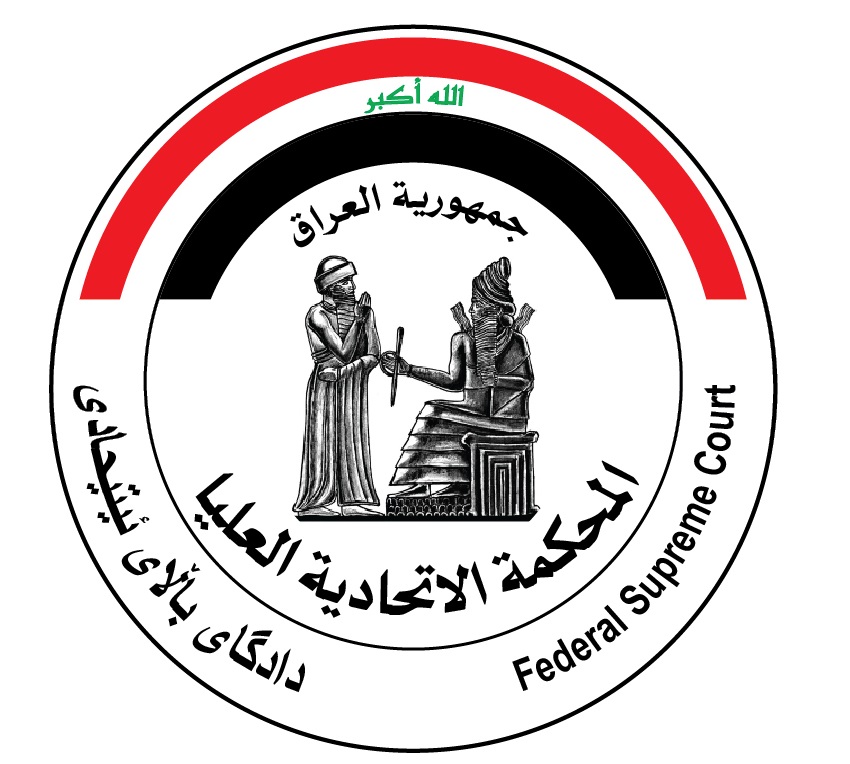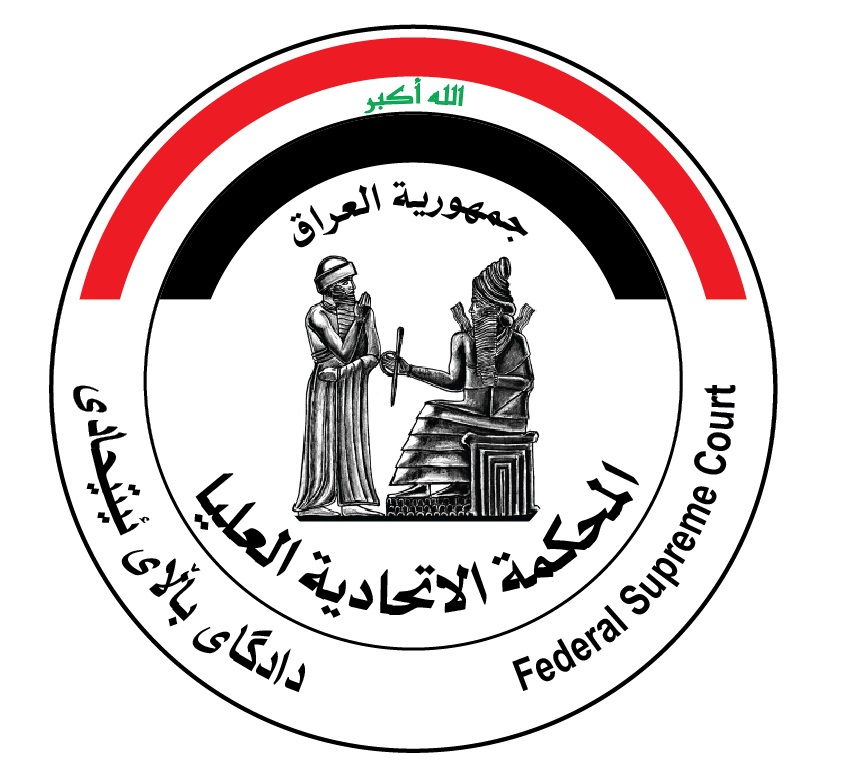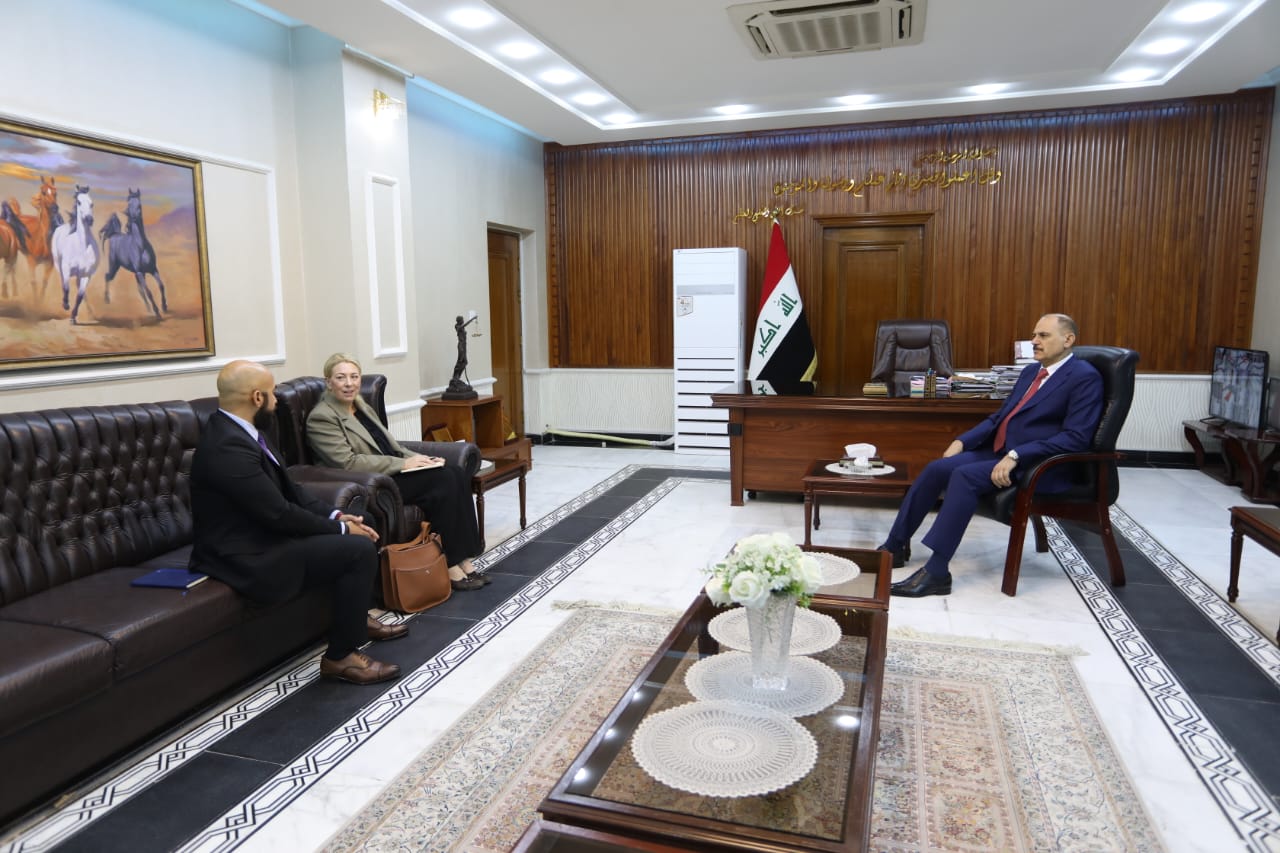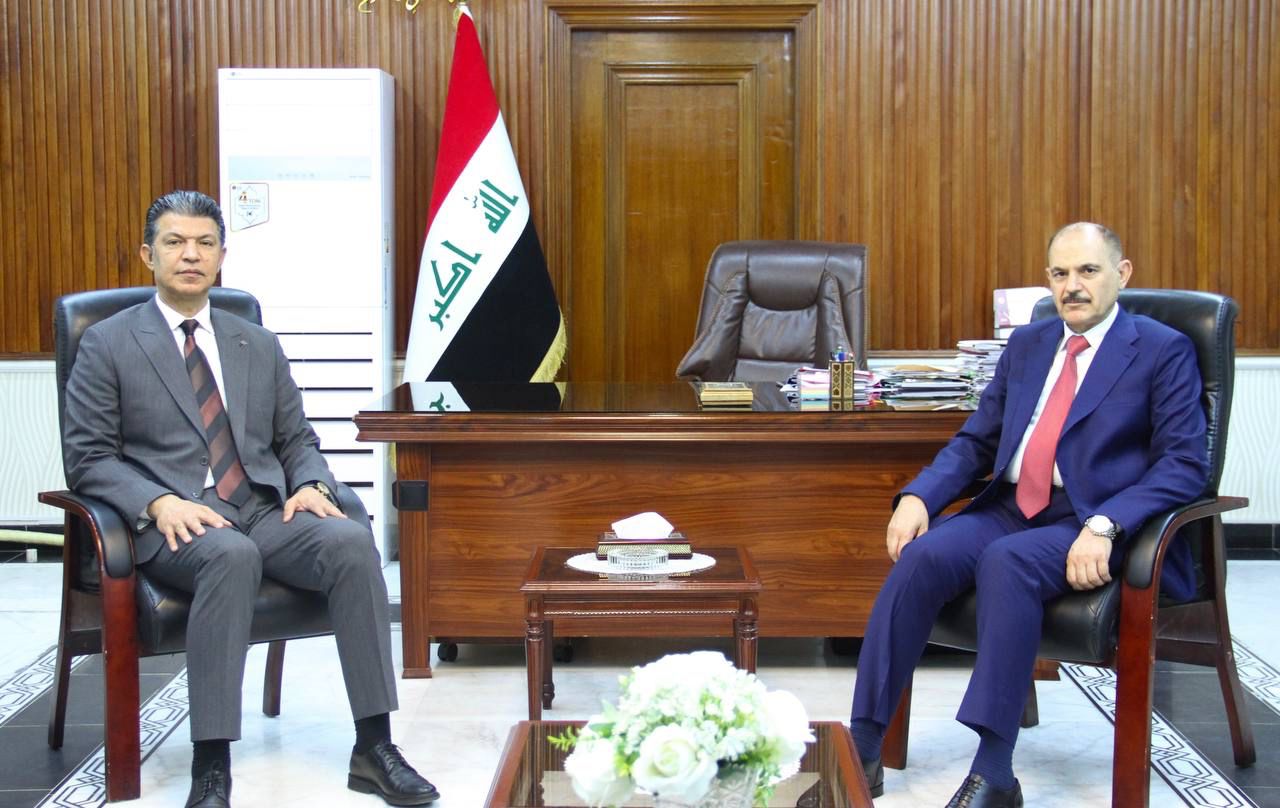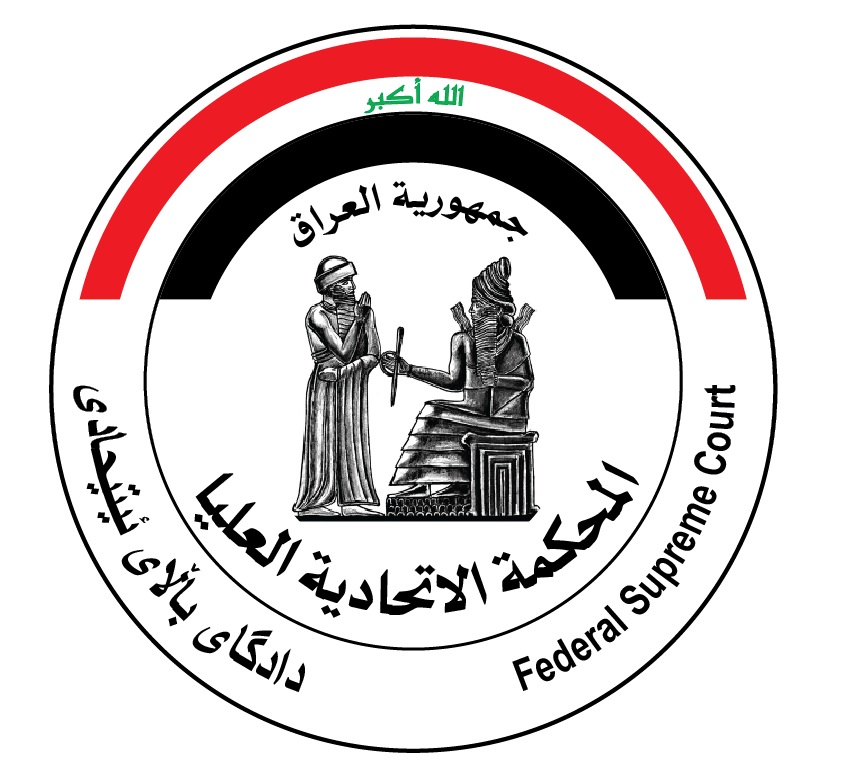
Federal Supreme Court settles electoral law challenges
Baghdad/ Media of the Federal Supreme Court
The Federal Supreme Court considered in a public session this day, 28/8/2023, the appeals filed before it in the number (73 and its units 79, 89, 103, 104, 114, 118, 144 and 145 Federal / 2023) to challenge the constitutionality of several articles of Law No. 4 of 2023 (the Third Amendment Law to the Elections Law of the Council of Representatives, Provincial Councils and Districts No. (12) of 2018) and issued its final and binding decision to all authorities, including the following:
First: The unconstitutionality of paragraph (Beh) of the item (1st) of Article (5) of Law No. (4) of 2023, which states (after the end of the electoral cycle for the provincial councils stipulated in item (1st) of this article, elections shall be held forty-five (45) days before and the date of the elections shall be determined by a decision of the Council of Representatives in coordination with the Commission before a period of not less than (90) ninety days).
Second: The unconstitutionality of item (3rd) of Article (6) of Law No. (4) of 2023 (Third Amendment Law to the Elections Law of the Council of Representatives, Governorate Councils and Districts No. (12) of 2018), which stipulates (to be not convicted of a felony or misdemeanor involving moral turpitude or cases of administrative and financial corruption stipulated in Articles (330, 333, 334, 335, 336, 338, 339, 340) of the Penal Code No. (111) of 1969, as amended by a final court ruling, whether it is covered by pardon or not), and the adoption of the text of item (third) of Article (5) of Law No. (14) of 2019 (the law of the first amendment to the law of elections of governorate councils that are not organized in the region and its subordinate districts No. (12) of 2018, which stipulates (that he must be of good conduct and behavior and not convicted of a felony or misdemeanor involving moral turpitude, including cases of administrative and financial corruption, by a final court ruling, whether it is covered by pardon or not).
Third: The unconstitutionality of paragraph (Jim) of the item (1st) of Article (9) of Law No. (4) of 2023, which states (seats allocated to the Christian component for membership of the House of Representatives, the nomination shall be individual within the electoral district, and the winner shall be considered the winner with the highest votes, and their constituencies shall be divided as follows:
1- The seats of Erbil and Dohuk, the Kurdistan region with its administrative borders shall be one district.
2- Seats in Baghdad, Nineveh, Kirkuk Iraq (except for the Kurdistan Region) shall be one constituency.
Fourth: The unconstitutionality of the phrase (Sabian Mandaean) from paragraph (Dal) of item (1st) of Article (9) of Law No. (4) of 2023. The phrase of paragraph (Dal) remains as follows: (The seat allocated to the component Iraq shall be one electoral district, and the nomination shall be individual within the electoral district, and the winner shall be considered the winner who obtains the highest votes).
Fifth: The unconstitutionality of paragraph (Heh) of item (1st) of Article (9) of Law No. (4) of 2023, which stipulates (the seats allocated to the components (Yazidis, Shabaks, Faili Kurds) The governorate to which the quota seat has been allocated shall be one electoral district for the elections of the House of Representatives, and the nomination shall be individual within the electoral district and the winner shall be considered the winner with the highest votes).
Sixth: Confronting and ruling on the unconstitutionality of Article (14) of Law No. (4) of 2023, which states (The text of item (2nd) of Article (37) of the law shall be deleted and replaced by the following: Second: Entities and individuals that prevent political parties from opening their headquarters and practicing their electoral activities), and adopting the text of item (2nd) of Article (37) of Law No. (12) of 2018, as amended, which states (gives, offers, or promises to give a voter a benefit to himself or others to get him to vote on face or abstention).
Seventh: The unconstitutionality of Article (21) of Law No. (4) of 2023, which stipulates that the Federal Service Council shall appoint those covered by the provisions of Article (1) of Law No. (27) of 2019 from the members of (governorates, districts, and sub-districts) councils who continue to serve until 26/11/2019 and distribute them to ministries and entities not associated with a ministry according to specialization and geographical location, and their previous service is calculated for bonus, promotion, and retirement.
Second: Governorates that are not organized in a region must provide the Federal Service Council with support for continuity of service and a certificate of the last salary until 26/11/2019 for those covered by the provisions of item (1st) of this article.
Eighth: Dismissing the plaintiffs' lawsuit regarding the appeal against the rest of the articles of Law No. 4 of 2023 that are not ruled unconstitutional referred to above.
